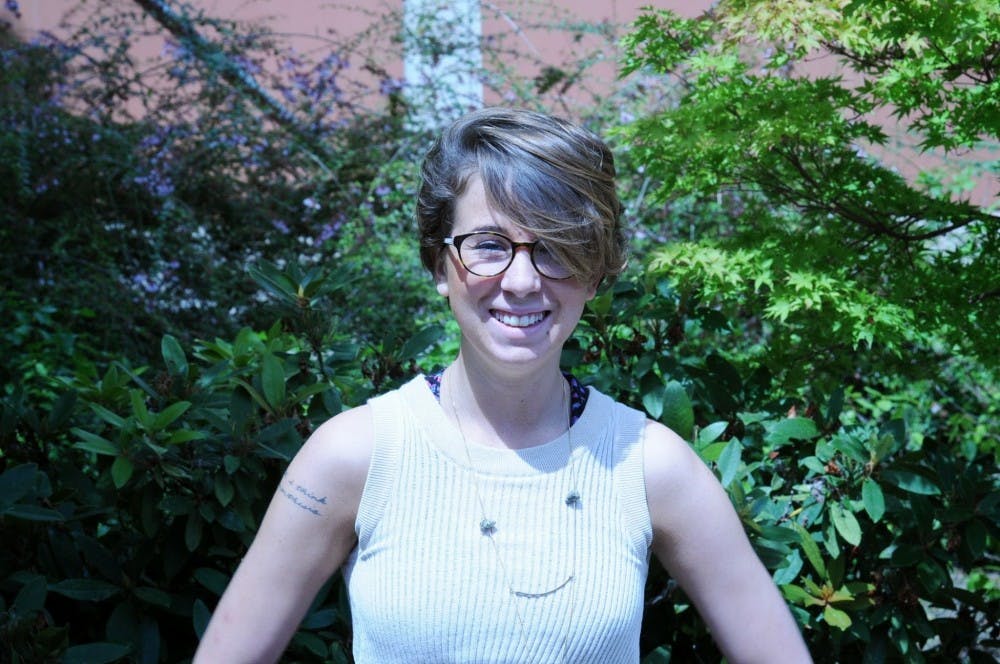Miley has always wanted the “best of both worlds,” ever since she was Hannah Montana. Recently, she has transmuted her celebrity schtick from the L.A.-yet-country persona, and her new look is still ringing with the same dualist tension that she has pioneered her entire career.
Unlike her Disney Channel days, the new Miley Cyrus is, well, totally racist! The “best of both worlds” in this case is receiving attention and profit for providing what SHE has deemed to be black culture from the seat of a white-privileged life.
In her music video for “We Can’t Stop,” Miley gives a shout out to “her home girls with the big butts,” the verbal accompaniment to her larger fascination with the black female body. She surrounds herself with black women, noticeably when “twerking” (a sexualized dance move but also another link in the long chain of dance moves hijacked for white profit) in both her music video and her infamous VMA performance of the same song.
“She likes big butts and she cannot lie,” you might say, “so what?” My answer: black women are not monolithically one giant ‘Big Butt’. Miley associating herself with these “big butts” only emphasizes how dramatically she has simplified the black female. She also strategically associates herself with these women because she wants to associate herself with blackness, which also further simplifies what blackness is. According to Miley Cyrus and her VMA performance, blackness IS twerking and black women are big booty’d. Her display is inherently stereotypical and damaging because it denies the black community their human complexity.
But what is most tragic about this new Miley goes far deeper than its stereotypical nature. Nearly every move she has made lately (tweeting and twerking alike) is bursting with sexuality which is not coincidentally in tandem with her sudden infiltration of black culture. Her butt fetish, as mentioned before, is a by-product of her larger animalization of black females (dressing them in giant bear costumes for added measure and grabbing their bodies in the middle of the performance at will). Miley is using her contrived concept of black females to create a sexual mask for her previous identity (blackface, anyone?).
But this leads me to the historical legacy that Miley should be more wary of. The black female’s denial of a self-proclaimed identity is not a modern phenomenon but instead can be traced to the slave era mentality. The patriarchal system of slavery animalized and sexualized female slaves in order to justify using them for breeding purposes. The rape of the slave was constantly denied and actually inverted: slave masters decided she was sexually insatiable, more animal than civil, and couldn’t be raped because she always seduced. This toxic philosophy was perpetuated past slavery - it did not disappear overnight, nor over the decades since.
Miley’s basic assumption that the black female existence is a sexual one is born out of this philosophy. It is a limited and offensive definition to ascribe to anyone, not to mention the largest problem: it is not Miley’s place to ascribe any such definition to anyone but herself.
Now, I consider myself a feminist and I believe that no one should be shamed into conforming her (or his) sexual or gender identity. But if Miley subconsciously needs to cling to these stereotypes in order to speak of her sexuality, that’s a personal issue. If Miley is buying into a patriarchal vision of female sexuality, that’s anti-feminist. If Miley is reinforcing damaging notions about the very people that she (may have) initially set out to celebrate, that’s racist.
But this op-ed isn’t to Miley. This is to anyone who thinks they are shielded from the R-word because just because they know how to twerk: solidarity against racism is a complicated effort and ever changing, but most importantly, solidarity looks nothing like twerking.
Olivia Alsept-Ellis is a senior English major. She can be reached at alseptl14@up.edu.









